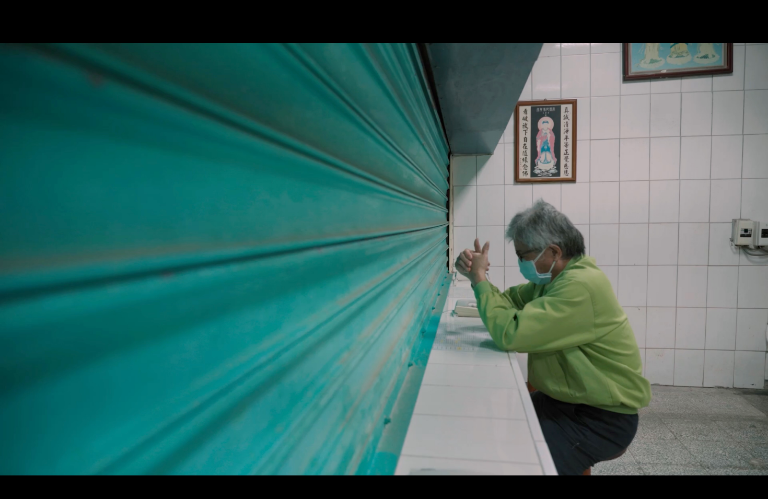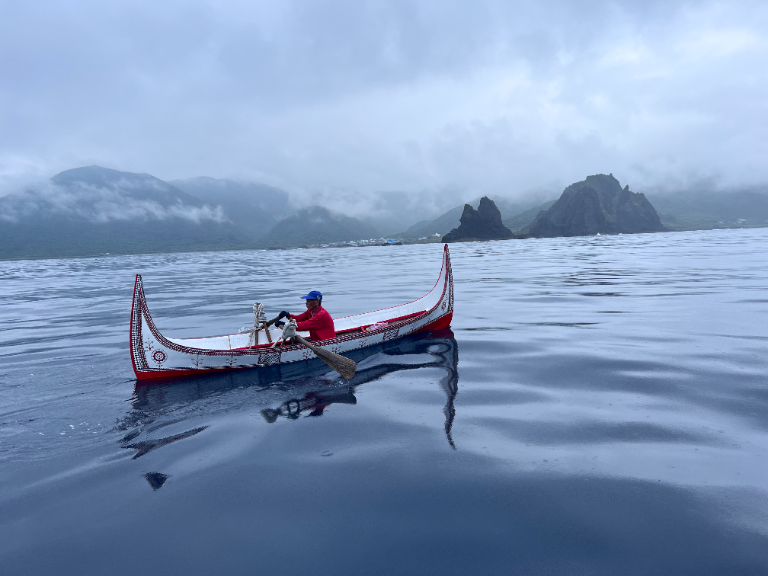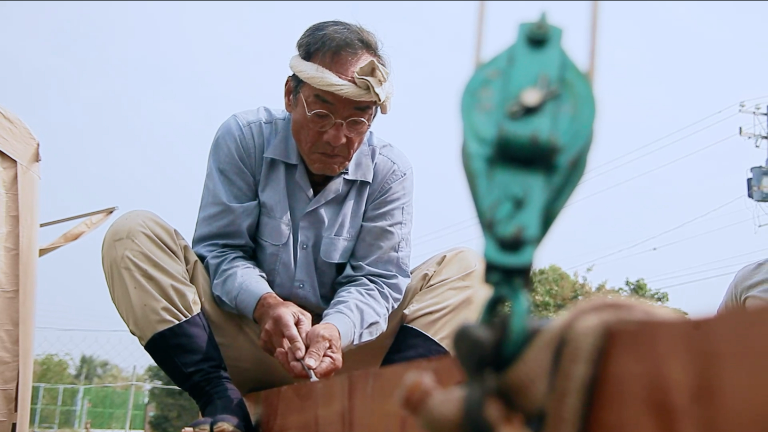In the beginning of 2022, I received a message from the National Culture and Arts Foundation (NCAF) inviting me, along with other professionals, as observers on their grant project, the Creative Documentary Film Project, and asking us to write down our observations on each case as assigned from a different and non-institutionalized perspective reflecting on the artists and the ecosystem they inhabit. The invitation was certainly a rare and interesting opportunity for a writer like me, not only with an academic training in anthropology but a lasting curiosity about the production of documentary and filmmaking. Since long time ago, my work had been mostly about selecting films for festivals or writing film reviews, while the intersection between filmmakers and me only took place in the final stage of its production process or after its completion when the films were ready to be submitted to festivals. Consequently, I was less familiar with all the possible difficulties in its making. The mission to write about it thus becomes a precious practice which does not expect an one-sided analysis and observation but encourages a dialogue between the observers and documentary makers.
I was paired up with Fan WU, a documentary maker around my age. We had met before, and the first time was in a documentary workshop organized by Taiwan Women’s Film Association, where we were in different groups and working on different documentary subjects, so we did not have a chance to know each other more. After that, we took on different journeys in life and career – Wu went to Europe to study documentary making while I joined the teams of Taiwan International Documentary Festival and Taipei Film Festival as a film selector and critic. Although we both remained in the film circles, but certainly in different positions and indifferent stages of filmmaking. When Wu finished her studies and returned to Taiwan, I was about to move to Holland, and our paths crossed again in some casual occasion with our common friends. We had a brief conversation, asking about what happened in life and about the future plans which were still in a vague shape.
After that, I knew her mostly through her work, such as how she founded Svemirko Film with her graduate school friends, produced the documentary Last Days at Sea (2021) which I liked very much, wrote a solid article “Walking with the Unknown – A Realization on the Road from a Muggle in the Documentary World” for the NCAF Online Magazine, and many more. When she was not making documentaries, she was still doing documentary-related job, and her concerns extended to include how we could improve the environment for documentary making. Perhaps it was her sociologist background which had broadened her vision to investigate the whole production ecosystem, while her experience in Europe had given her access to introducing international resources to Taiwanese documentary making.
The fact is: most of the Taiwanese documentary makers are the lone warrior in their own battlefield, taking on multiple roles from production to public screening without the necessary teamwork especially in its breeding stage, the most crucial among all. Their sources of funds are often limited, mainly from the government support, and strictly regulated to avoid the overlap between the Ministry of Culture, the NCAF, Taiwan Creative Content Agency (TAICCA) and Taiwan Public Television Service Foundation (PTS Foundation) in one single project — not to mention these four major institutions in terms of the government financial support have their respective rules. In an immature industry in lack of investment or sponsorship from the private sectors (or they may have a specific interest when it comes to investing a documentary), independent documentary makers are not left with many choices when looking for sufficient resources and support domestically. What matters the most is the lack of experience sharing – on the one hand, there are not enough platforms of openness, transparency and stability for documentary makers to exchange their ideas; on the other hand, the TV and filmmaking industry in today’s Taiwan pressures the documentary makers to learn to survive before really thinking about how to find a balance between the commissioned commercial documentary projects and their own creations. None of it is easy.
XiXi, the documentary feature project in production, is such an adventure of the director WU, starting from her experience as a Taiwanese documentary maker to challenge the limitations of the domestic documentary production system, to extend the international documentary-making network and to connect with the resources of the global documentary scenes. My observations, meanwhile, started when WU finished most of the shooting and focused on her another trip to France in the summer of 2022 for some pick-ups, and the article was completed when she was still editing the documentary.
The main subject in the documentary is an improvisation artist from China, the free and untamed XiXi, who travels from one European city to another like a nomad, performing improvisationally in the streets. The documentary continues to depict how she deals with a failed transnational marriage, the loss of visitation rights, her immigrant status and many other real-life problems, while it also touches upon the unsolved family issue with her mom and its lingering impact on her relationship with her daughter Nina like a Karma passed down. As the director as well as a friend being part of XiXi’s life journey, WU saw XiXi, a female artist from the same generation, as her “window to freedom” – it was in 2018, when WU finished her studies and returned to Taiwan, trying to set free from the conflict between her real life and the dream in art/filmmaking. XiXi had a soul of an artist living fully in the moment with total abandon, which was something WU had been longing for but did not have the courage to follow. However, when WU started the documentary project and used it as an “excuse” to pursue a life of freedom in France, she found XiXi suffocated by the bitter reality.
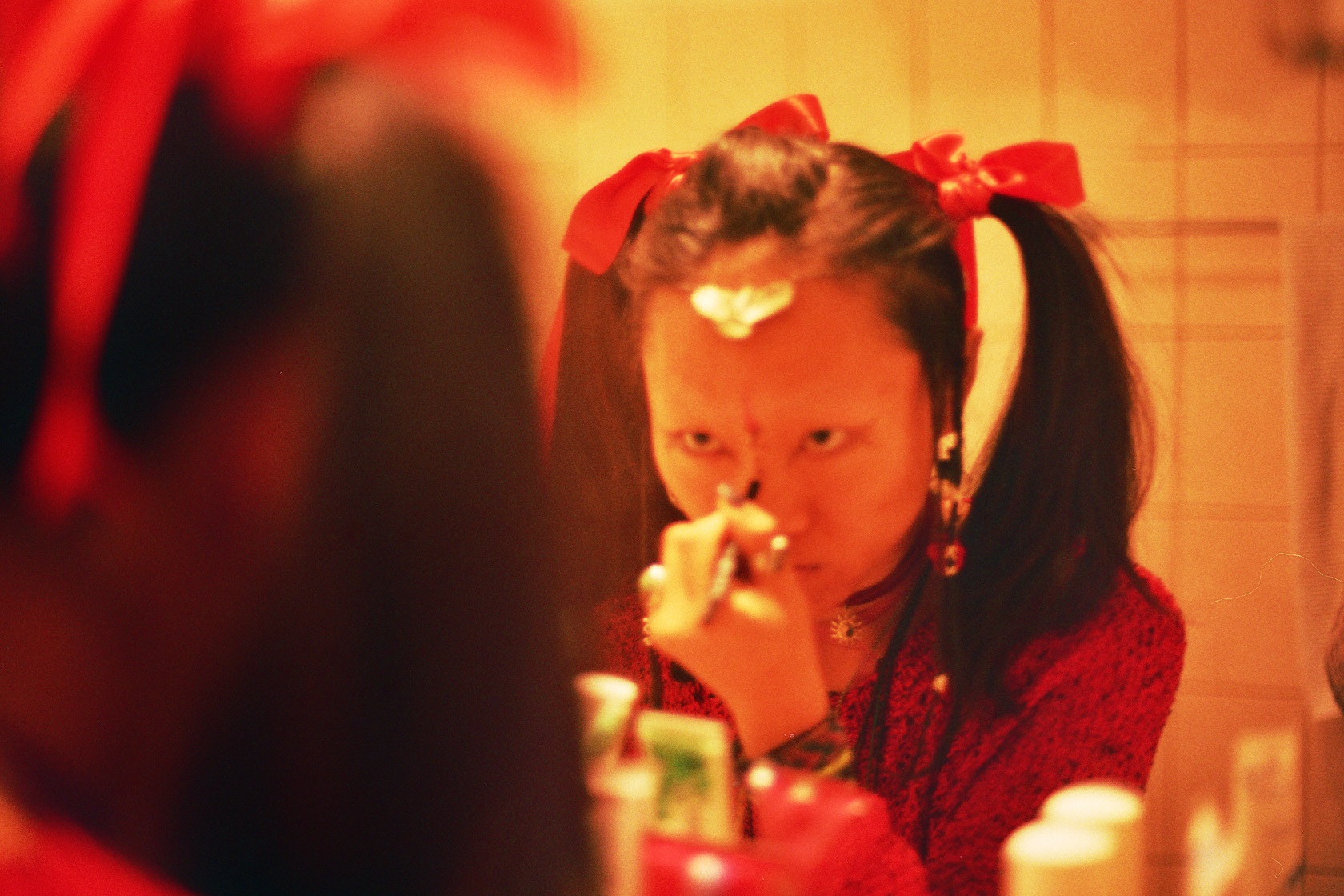
XiXi is a documentary on the Chinese improvisation artist XiXi and how her untamed artistic soul has a clash with the social reality. (Courtesy of Fan WU)
From the first draft we have of XiXi, we not only see the story of the nomad artist but also how WU, another artist with the same defiance and abandon running in her blood, tries to find an answer. In her eyes, XiXi is the embodiment of both her dream and fear, but just like that the Moon has two sides, and its light and dark sides coexist to manifest each other. Through her documentary project, WU seems to join in the journey of XiXi to search for the answers for all the troubles in life.
Since 2018, WU has presented her documentary project XiXi to different international film festival pitch events, forums and workshops to physically experience and experiment how an independent documentary maker can find a way to deal with the limitations in practice. She finds the strength from the global documentary-making communities as she finds her own voice, making it clear that the act of documentary making may create a space to more extensively connect the individuals scattered around the world.
Fortunately, WU has relatively more experience in international pitch events and workshops with her XiXi than most of the Taiwanese documentaries, including Docs Port Incheon Asian Documentary Project Market in Korea, Doc Edge Kolkata in India, the workshop AsiaDoc with an emphasis on documentary script-writing, the incubative CIRCLE Women Doc Accelerator for female documentary makers, DOK Leipzig Co-pro Market in Germany for co-production, DOCS-IN-PROGRESS (Cannes Doc) in France, the art-in-residence workshop at Yamagata Documentary Dojo in Japan, and Rotterdam Lab in the Netherlands again in early 2023. Other pitch events in Taiwan include Taipei Film Academy–Filmmakers Workshop organized by Taipei Film Commission where she attended as a film producer and the editing workshop under the NCAF’s Documentary Partnership Project where she participated as the director of XiXi.
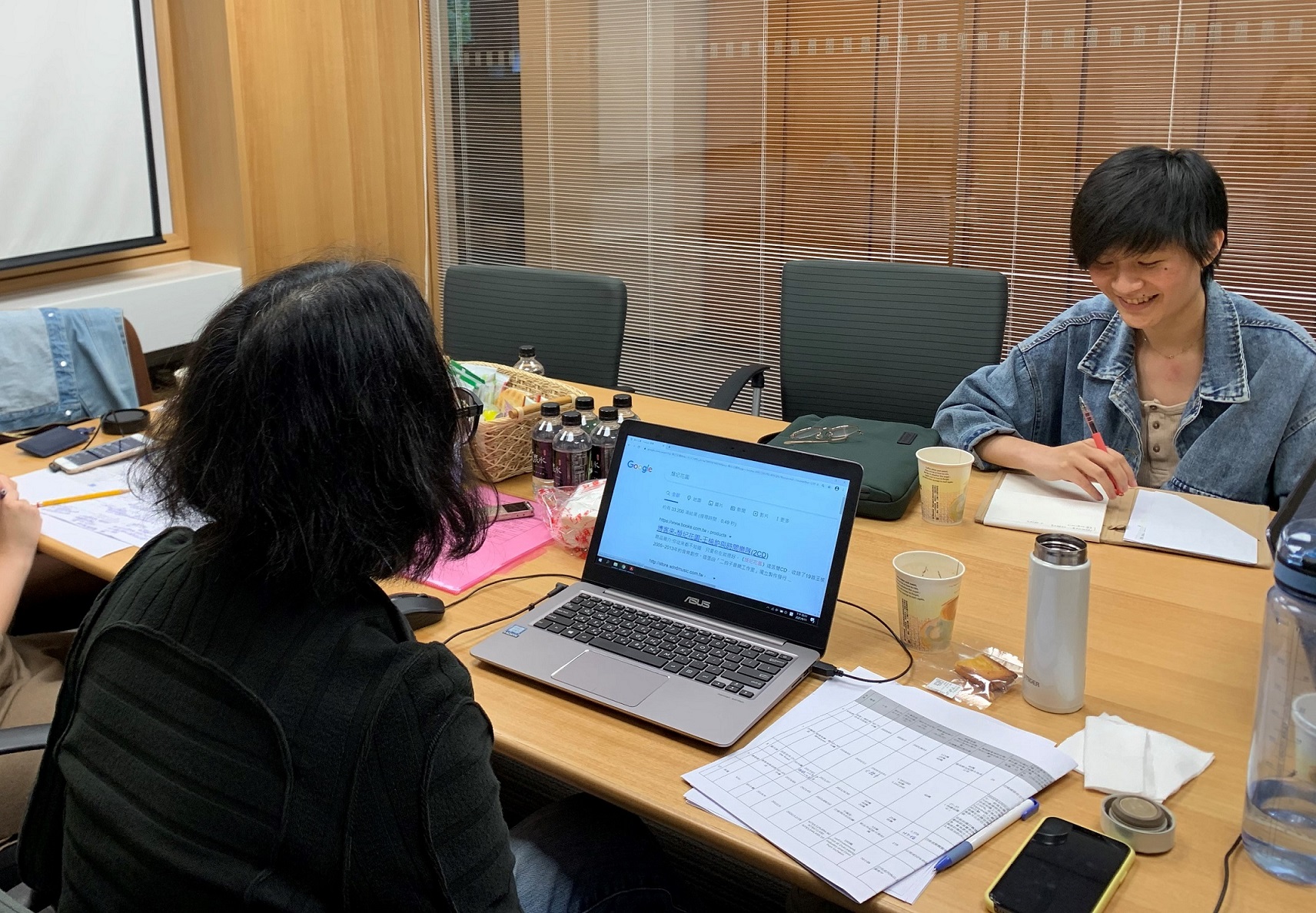
Fan WU in the editing workshop under the NCAF’s Documentary Partnership Project.
For WU, all these domestic or international pitch events and workshops provided different kinds of support to the production of XiXi in their respective ways. The exchange with the professionals in the industry brought new and exciting ideas to the content, contributed to the establishment of a functional work model and network, optimized the résumé of the project to make it more attractive, as it might also lead to the practical financial support. It is how you find resources and discover different possibilities for your project.
However, it does not mean that if you attend more international pitch events, you will get better reward. Quite on the contrary, it can be very time-consuming as it requires a lot of preparation from submitting your application to really attending it, and you often receive a huge amount of unfiltered advice about your project. If you fail to find a balance between external opinions and internal needs, you may easily suffer a blow to your confidence and get confused about which direction you should be going. Therefore, the documentary makers need to figure out what they really need in each stage and which pitch events or workshops provide it, asking questions about the mentor list (what network can you develop from it?), format (does it have a more intensive or looser schedule? Who are the other participants you expect to see in the same event?), and its role in the industry (what it emphasizes? Is it about script-writing, pitch and development, editing, post-production, or market fit?), which can help you to make a useful decision to select the right events.
Up till 2019, WU had accumulated a significant amount of footage for XiXi, including the video diary made by XiXi of her relationship with the daughter taken since 2011 apart from the shots of XiXi by WU. At that point, she had already made the decision to turn XiXi’s story into a documentary feature and brought the project to several international pitch events, but it was a battle “out of her league,” said WU, for that she was not sure about the best way of its storytelling. Therefore, AsiaDoc Creative Documentary Storytelling Workshop could be what she needed, as it certainly did. At AsiaDoc, WU went through the process of organization and composition together with the guest mentors from teasing out the materials she had, developing a timeline, and to constructing a possible storyline built on the materials.
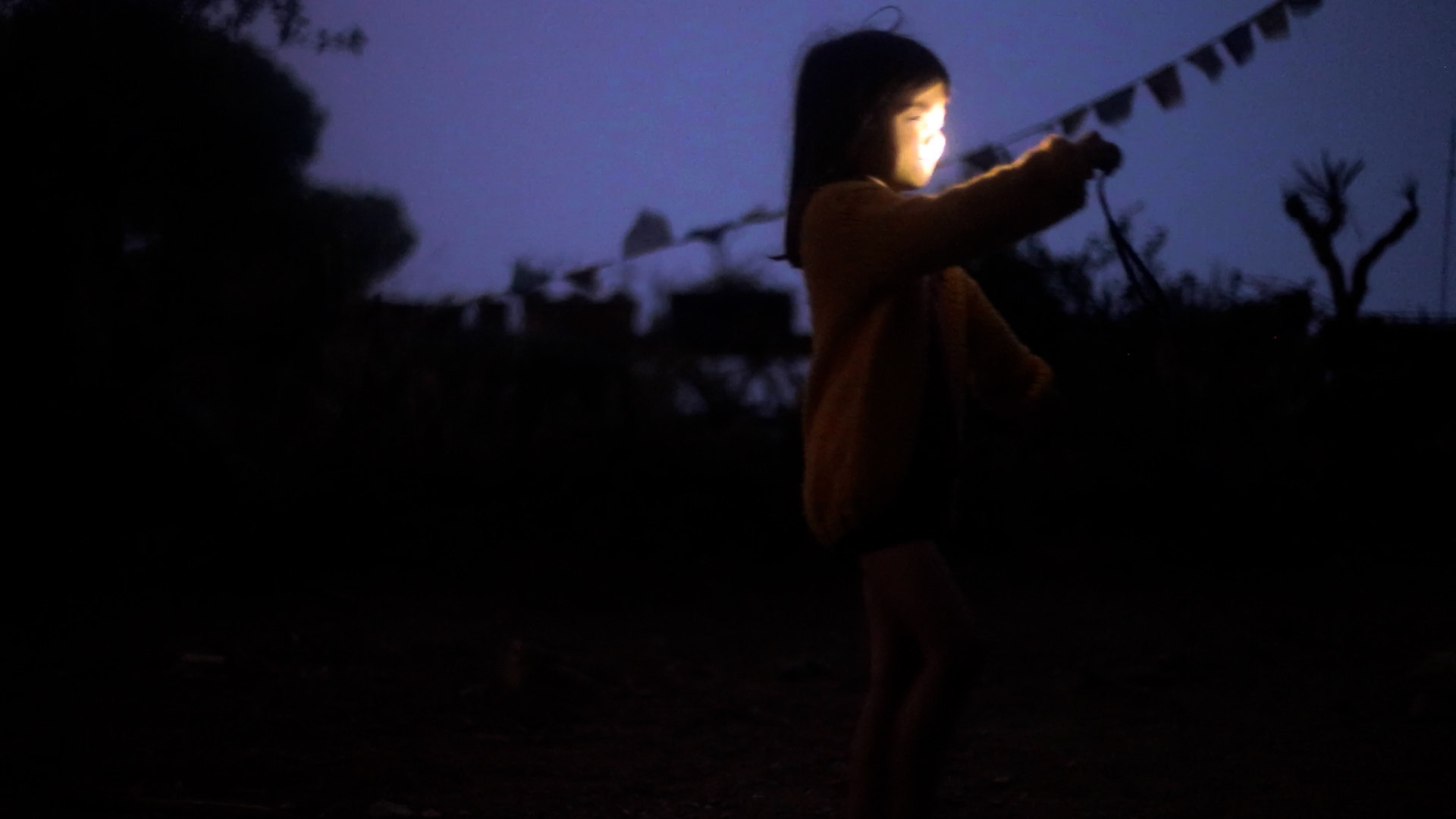
The footage for XiXi includes the video diary made by XiXi since 2011 of her relationship with the daughter Nina and their growth. (Courtesy of Fan WU)
Her experience at AsiaDoc greatly inspired her to reidentify her position in the film, such as the relation between the camera and the subject, between the documentary and its director, or her relationship with XiXi. In the initial stage of her shooting, she refused to be filmed and took on the role as an objective outsider instead to document XiXi’s life, but the mentors at AsiaDoc asked the crucial question concerning the problematiques of her work: “why do you always put XiXi and her daugher on the frontier (of shooting) whereas you cowardly hide behind a camera? You do have your questions in mind and try to investigate by making a documentary, right?”
In documentary making, the camera is not only the “fly on the wall” while the director has to futher think about their relatioship with the story and subject (person), asking questions such as “why they story needs me to tell it.” From this perspective, documentary indeed requires a dramaturgical training and thinking. After AsiaDoc, WU began to conceive several scenes and invited XiXi to join in the process together, where their interaction in front of the camera was filmed. She also tried to script her first-person narration as a voice-over of the video. In spite of her lack of courage/intention to make such atemtps before, they did work very well when she gave it a try as if finding the missing piece to make the documentary more alive. Stepping out of the comfort zone was not as difficult as she had expected – with a smile on her face, WU shared with us this recent realization and her newfound courage which she had gradually learned in pitch events and workshops. From a director hiding behind the camera, she now also becomes the subject in front of it. XiXi is not just about XiXi’s story, but a journey of both WU and XiXi to explore the meaning of life and to make inquiries.
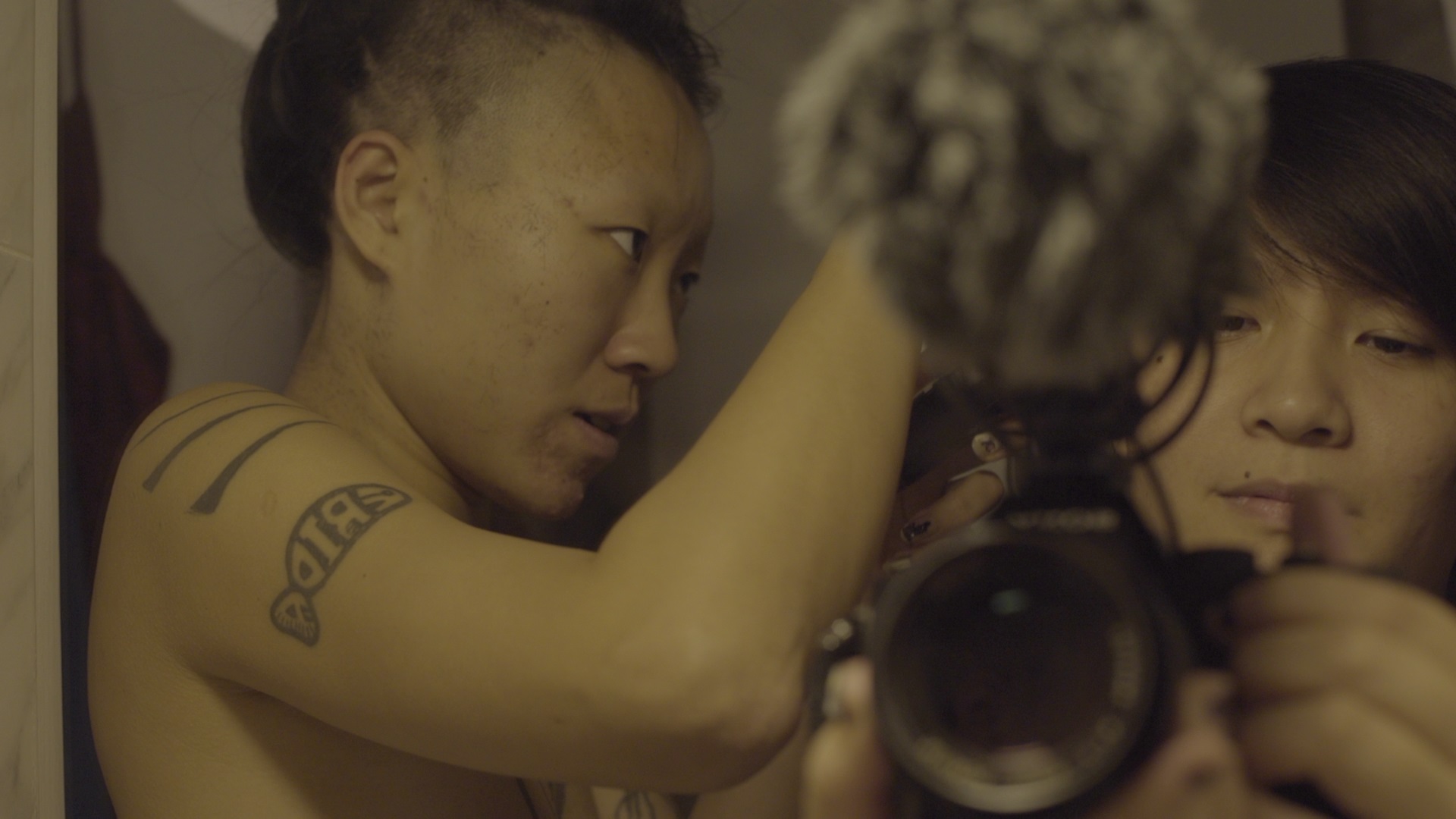
From the first draft we have of XiXi, the documentary is not just about the story of XiXi but how WU, another artist of an untamed spirit, makes inquiries. (Courtesy of Fan WU)
International pitch events and workshops are not only the places to creatively inspire documentary makers and to give advice on developing a production model, they are also the impotant means to look for possible international collaboration and financial support. Apart from prive investment and sponsorship, the sources of funds for documentary making in Taiwan mainly comes from the four major public institutions — the Ministry of Culture, the NCAF, TAICCA, and PTS Foundation – with strict regulations that there cannot be an overlap to fund the same project, while each institution has its own rules and the amount of money is never enough. Reasonably, WU has her eye on international funds to make her XiXi happen.
The problem is, being a Taiwanese usually means that you will not have many opportunities to apply for the funding and grants in Europe (see “Walking with the Unknown – A Realization on the Road from a Muggle in the Documentary World” by WU), while being an emerging director without a convincing résumé also makes it more difficult, if not impossible, to directly jump into the market and seek investors. If you are thinking about international co-production, you should make sure that a certain percentage of your funding comes from domestic resources, otherwise you may get yourself into trouble with the negotiation with international producers who usually have deeper pockets. The political situation of Taiwan is another issue since some countries and regions do not include Taiwanese artists in their “co-production treaty” concerning the collaboration between local and international artists.
With the Filipino producer joining in the co-production of XiXi, WU was looking for another producer from Europe to make its financial structure more stable. Despite her effort from 2019 to 2021, French producers seemed to show little interest in her story taking place in France, while many other European producers backed out after learning the fact that several major film funds in continental Europe (such as IDFA Bertha Fund, Hubert Bals Fund and World Cinema Fund) were not applicable to Taiwanese directors. Eventually, it was a Korean producer whom WU had met at Docs Port Incheon completing the team and stabilizing the financial structure. As a result, XiXi would have its post-production in Korea, and team welcomed the film composer and colourist recommended by the Korean producer. By doing so, WU also expanded her collaboration network to work with different people.
The Importance of Documentary-Making Community
Looking back on the international pitch events and workshops WU has participated in with her project XiXi, WU does not only have practical reward in production but also in the establishment of artist communities. Her experience in CIRCLE Women Doc Accelerator in 2020, a newly formed workshop centering on the training and development of female documentary makers, proves the significance of having fellow artists as companions with mutual support. Documentary making is a long and lonely journey, while most of the documentary makers fight alone in the battlefield built on their materials, gradually and unavoidably struggling with confusion and self-questioning, not to mention the possible blind spots in one’s thinking. It is the advantage of communities, like a safety valve to function and to get the artists out of the crisis when needed. CIRCLE Women Doc Accelerator divides its courses into three stages, in which you can share your project with mentors and colleagues (fellow artists in the same annually-held workshop) throughout the year and mutually push the discussion on each project forward.
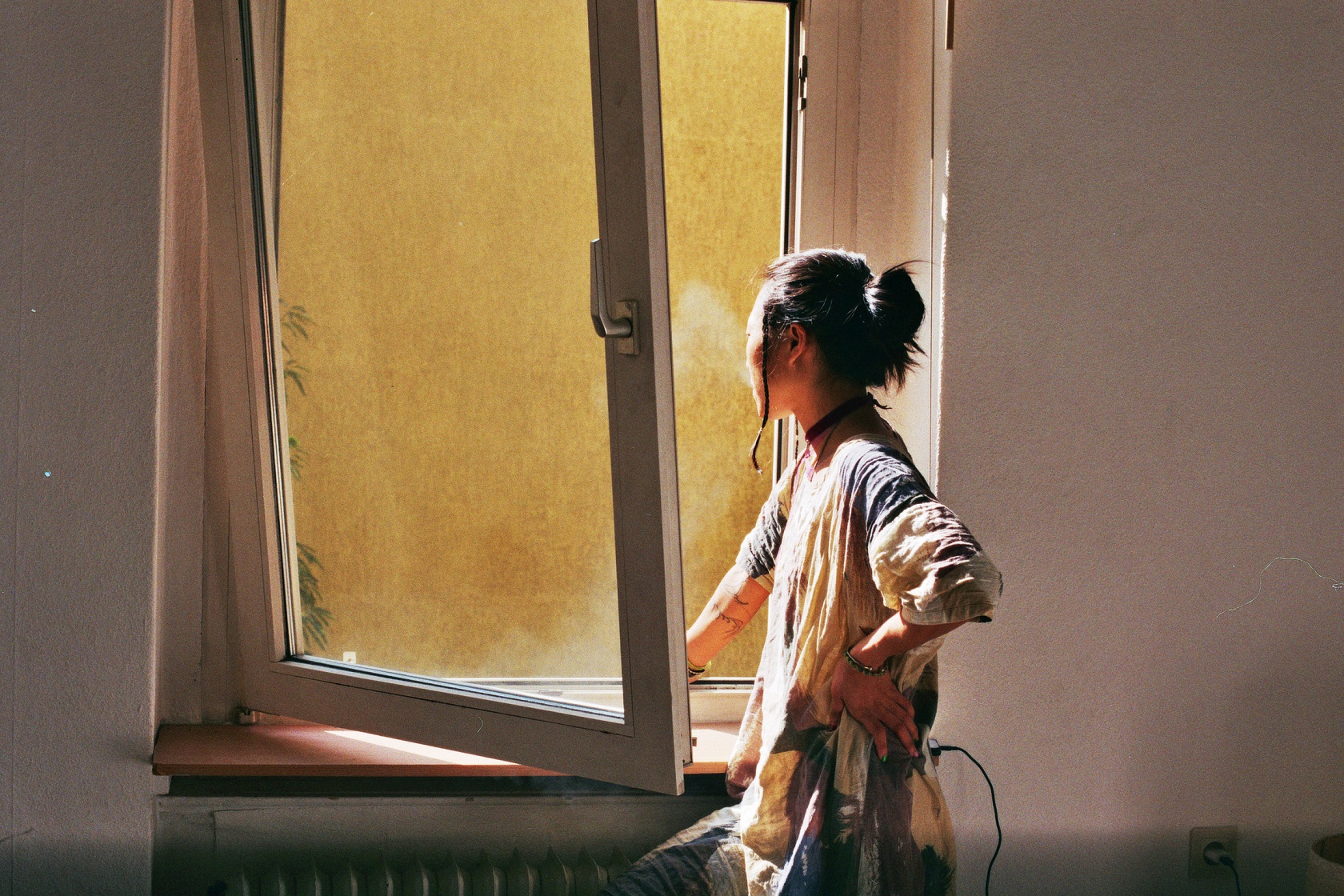
In documentary making, the camera is not just the “fly on the wall,” while the director has to further think about their relationship with the story and subject (person), asking questions such as “why they story needs me to tell it.” (Courtesy of Fan WU)
The experience in Yamagata Documentary Dojo also provided WU a safe and undisturbed environment for documentary making. Although it switched to online activity in 2022 due to the pandemic, the organizer’s careful arrangement still provided a positive space for WU to receive useful feedbacks for editing, where she was at. The guest mentors at Yamagata Documentary Dojo mostly had a background in editing, so they could effectively help the production team to deal with their materials and gave practical advice on the content. The composition (both the members and mentors) and atmosphere of the workshop were also key factors to create a positive environment, as it avoided a teacher-student hierarchy and tried to encourage all kinds of dialogue between different production teams, rather than close-door group discussion or mass lecturing. Yamagata Documentary Dojo develops a delicate small-scale community and offers a safe and open space for all participants to exchange ideas.
In 2021, WU was selected by the NCAF in its Documentary Partnership Project, where she worked with the assigned editor Lei Chen Ching, having her project to be “taken care of” and her messy ideas put in order. The purpose of the partnership project was to provide an environment for documentary makers to return to the essentials, which were the materials, footage, subject (person) and story, rather than being disturbed by the marketing concerns, which should have come much later. Meanwhile, her experience in DOCS-IN-PROGRESS in 2021 was a different example. It did not really bring inspiration for the content but increased the visibility of XiXi in the market since the project was selected in Marché du film de Cannes.
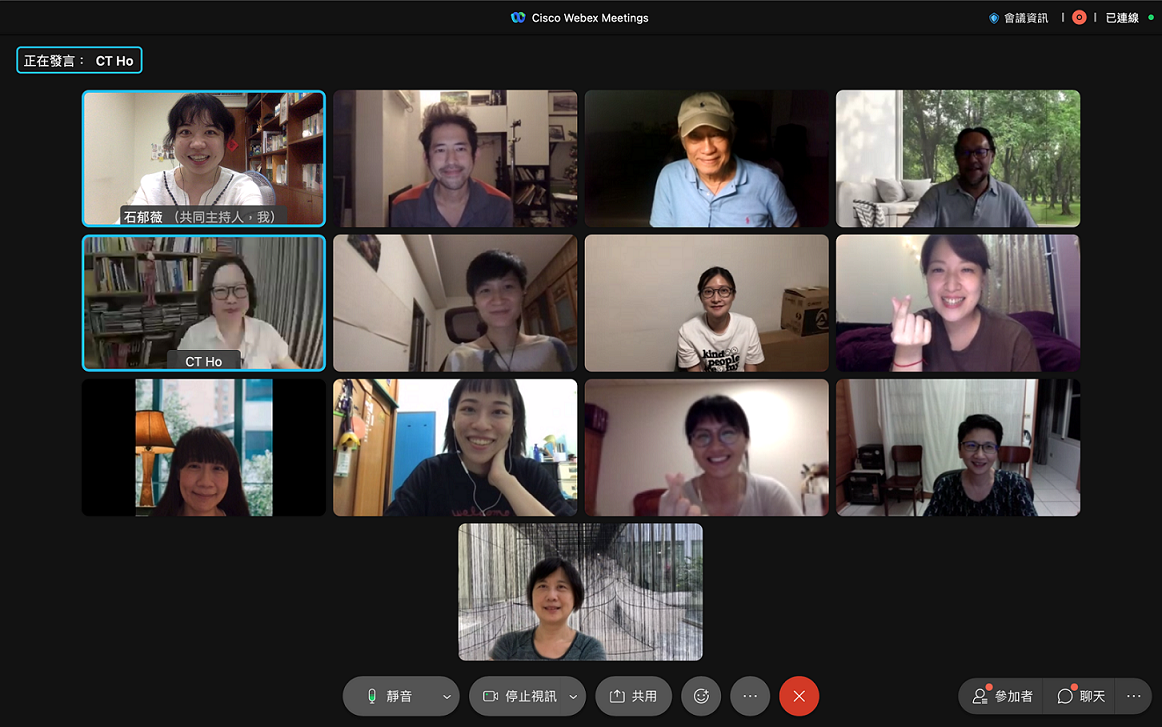
Director Fan WU attending the online discussion of the NCAF’s Documentary Partnership Project.
Film Proposal Writing Has Its Unique Universal Format
WU has once mentioned that “film proposal writing has a unique universal format in the industry.” With all these international pitch events and workshops she has attended with her project XiXi, and the numerous funds and grants she has applied for, she laughed and said that she did not even remember how many proposals she had to write. For WU, proposal writing is a useful process to restructure your thoughts and work. On the one hand, she really depends on writing to develop her cinematic language; on the other hand, proposal writing demands a kind of structure that can facilitate the creative process to prioritize the materials and to give a functional narrative in documentary making. If the documentary makers can give their project a clear outline, and to help others to better imagine “something” which is still in its incubation stage, they will have more chances to target the specific support they need when they pitch. It is like a preproduction on paper before the creative idea is made into a movie. Such a strategy, admittedly, is the result of today’s TV and film production mechanism, but if the artists need its resources, it is necessary to learn the mindset of the industry, to know how it operates, and to speak its language.
XiXi is in the editing stage now, which started in the spring of 2022 as WU and the Columbian editor Anna, her graduate school friend, worked remotely. WU first selected the most important materials based on her judgment, translated the subtitles, and sent the footage to Anna for editing, followed by their daily update and discussion via emails. Usually, since they were in different time zones, WU would send the notes to Anna and receive her reply on the next day. Their remote collaboration had continued in this way for a while, until last summer when WU took a trip to France for more footage of XiXi and soon went to Columbia to work with Anna closely. At that time, the Sundance Institute Documentary Fund came in as an immediate help which they urgently needed it for the editing of XiXi. Speaking of which, WU recommends “Sundance Documentary Fund Proposal Checklist” to any documentary maker troubled by how to write a good proposal, where they can find all the information a proposal requires, concerning the sections it should include, as well as the detailed description and the appropriate length of each section. The structure it suggests is a great help to documentary makers to continuously polish their project.
The following year is a crucial one to XiXi. WU plans to attend a couple of rough-cut workshops which may help her to bring the cinema language closer to her ideal, as a preparation for the post-production stage. If everything goes well, she will submit XiXi to international film festivals next year. As she spoke about the long journey she had with XiXi, WU admitted that she would not have made it by herself if without the support of her team. To have a documentary community is very important, especially when documentary makers usually work by themselves, so she hopes that the case of XiXi can offer her fellow Taiwanese artists a different strategy to make it work, with a confidence that a non-issue-oriented project like the one she has, which touches upon very personal experiences and thus risks of being rejected by the mainstream, still has the possibility to grow and develop. This is what the story of WU and XiXi tries to explore and make us to see – can we have such an unrestrained freedom and courage to live as we are and create as we live in spite of the unescapable social reality? The project of XiXi, tenacious as it is, claims a collective effort to open up a space for arts and its multiple different faces.
*Translator: Siraya Pai
More CASE STUDY
_1685344611325.png)
